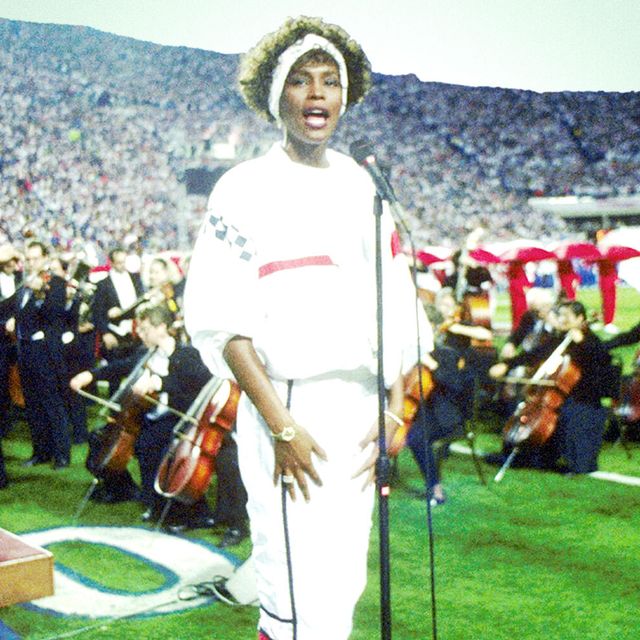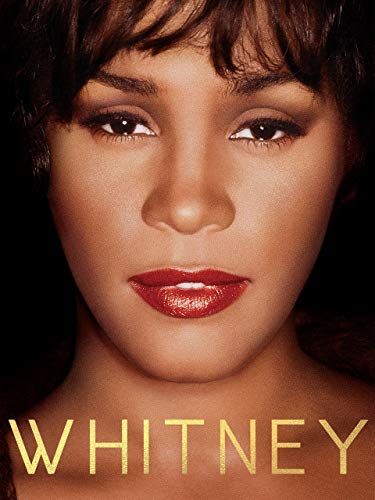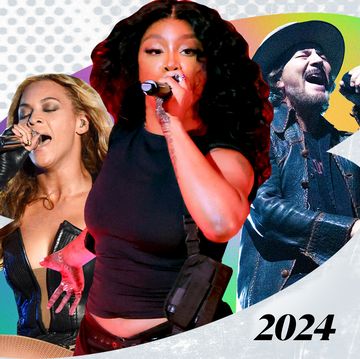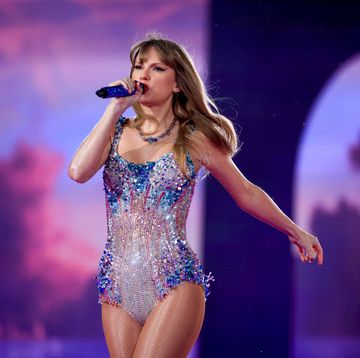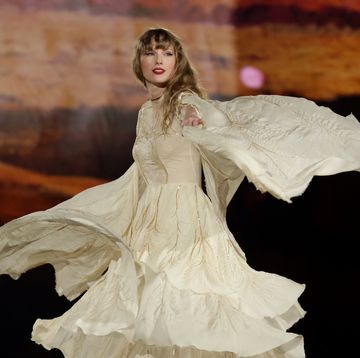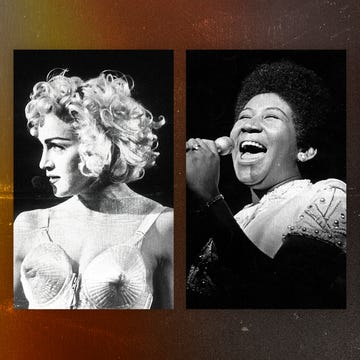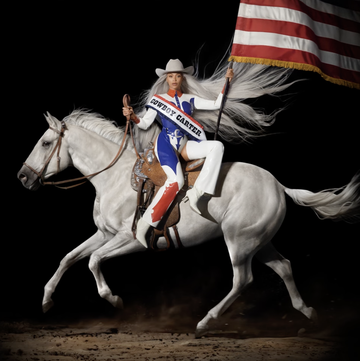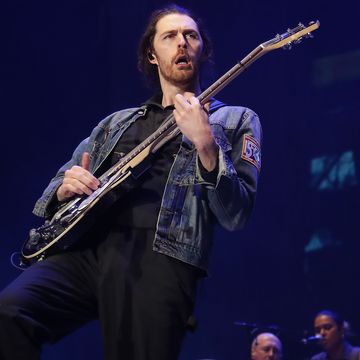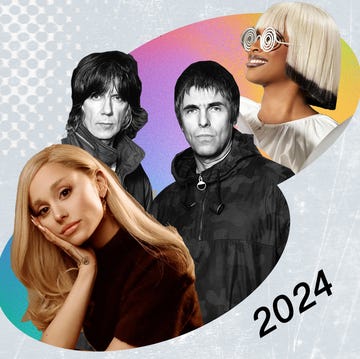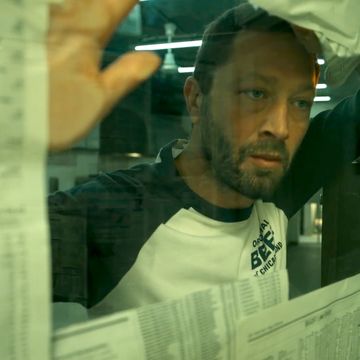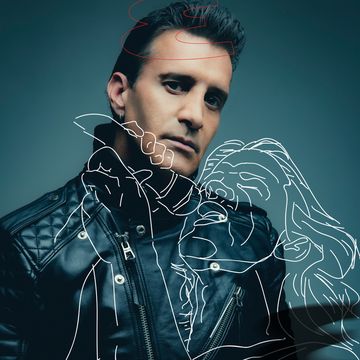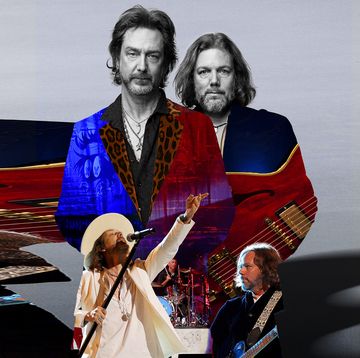On January 27, 1991, only ten days had passed since American military forces were deployed to Iraq, officially launching the Persian Gulf War. Thrust into another Middle Eastern conflict, Super Bowl XXV felt less like a football game and more of a testament to American excellence. This is our sport. Our football. This is American strength. As political scientists have noted for years, there's this thing called "rally 'round the flag effect," where tragedy or war inspires an increased sense of patriotism. Literal baseball card mockups were made of Gulf War soldiers. The government was selling the war with a heavy dose of American patriotism, and what could be more patriotic than the National Anthem, sung by the Whitney Houston, in a stadium packed with 74,000 people more proud of being American than ever before? If anyone could sell patriotism in two minutes, it was Houston.
At dusk, she appeared on the field, flanked by the Florida Orchestra. Walking up to the mic in a white tracksuit, headband, and matching Nikes, there was no flashy pomp and circumstance that typically accompanied a Houston performance. Instead, she waved to the crowd, stood at the mic, put her hands behind her back, and sang the National Anthem. What followed was a tour de force of an anthem, pivoting between powerful silky notes and effortlessly rich vibrato. The intricacies were somehow both subtle and revolutionary, unlike any Super Bowl rendition of the National Anthem that had ever preceded it.
Houston's performance was, of course, a cultural moment for all watching that day, but it held a special importance for Black Americans. Sandwiched between the War on Drugs in the '80s, which disproportionately affected Black people and the 1992 Los Angeles riots, Houston's ascent and domination of a typically white-dominated pop landscape was a testament to Black excellence. In the 2018 Kevin Macdonald documentary Whitney, Kenneth "Babyface" Edmonds said, "Hearing her sing The Star-Spangled Banner—she made people proud that they were Americans."
But behind the scenes, NFL executives nearly derailed the whole performance. Execs argued that the gospel-style take would be deemed over the top. That Houston's approach was simply too much for the occasion. They reportedly asked that the song be redone, but Houston's father shut them down. No rerecording. Houston sang the Anthem, went to watch the game, and didn't find out until later that the world was already seeking out where to buy a single of the performance. Because of demand, Arista Records decided to release the single, with all proceeds going to the charity of Houston's choosing. Houston chose a fund that directly supported troops and their families. After the song charted in the Billboard charts top 40, Houston said, "They say the national anthem is one of the hardest songs to sing, but it gets a whole lot easier to use those notes when you think about the many men and women risking their lives in the Middle East."
People were enamored by Houston's rendition of the song. So enamored, in fact, that skeptics questioned authenticity of the performance, specifically when fans discovered the "live" performance was a master track that Houston sang along to with a dead mic. (For the record, this is a commonly used approach in massive live events, and Houston famously sang her recording in one take). But a month or so later, she hosted the concert Welcome Home Heroes on HBO—a concert for soldiers and their families. It drew, at the time, HBO's largest audience. To kick things off, she revisited her instantly iconic version of the Star Spangled Banner with a largely a cappella arrangement. This time, no pre-recording or speculations. Just Houston revisiting her exact performance with nary a note out of place. The single was re-released in 2001, following the September 11th attacks. It peaked at number six on the Billboard charts, with all proceeds going to charity.
The National Anthem, as we know it today, is due in large part to Houston. Though the Super Bowl had been tapping top-tier talent to sing the Anthem since Diana Ross' 1982 performance, no one had taken the artistic license that Houston did. Super Bowl renditions were predictable and deliberate, more akin to a singalong than a track open for interpretation. Houston upended that tradition. The closest thing the Super Bowl had seen to a deviation was the year before, when Aaron Neville performed the Anthem in his signature vocal style. There's a rich history of Black artists reinterpreting the National Anthem for political and creative purposes—notably Jimi Hendrix and Marvin Gaye (whose own version inspired Houston's performance). But this was the first time an artist had reimagined the Anthem at the Super Bowl, the biggest sporting event in America.
In the 30 years that have passed, coming up with a worthy contender to topple Houston's cover is nearly impossible. She inspired a generation of performers to put their own spin on the anthem, to varying levels of success: from the Dixie Chicks' intoxicating harmonies to Christina Aguilera's mislicked attempt that prioritized vocal gymnastics over accuracy. Houston's legacy may be entrenched in her signature "I Will Always Love You" cover from The Bodyguard, but her influence finds new life in every soulful interpretation of The Star Spangled Banner. Even this one. (Not every attempt is a touchdown.)
And that brings us to today, looking at the Super Bowl LV, following a year of pandemic, four years of a failed presidency, and a beleaguered nation that has been at war for nearly two decades. National pride is at an all-time low. Even with echoes of Houston's National Anthem in the background, it's hard to imagine that the reception would be the same. 1991 was a perfect storm of war and patriotism, employing aggressive American propaganda by leveraging the most talented vocalist of our time. It's a moment that now feels like the relic of the past. In 2021, the National Anthem conjures memories of kneeling and protest—it currently represents an America, in the midst of an ugly self-actualization and division we haven't seen since the Civil War.
Thirty years after the fact, it's difficult to imagine anyone's voice—perhaps even Houston's—tapping into that same sense of American pride. That's what makes it a once in a lifetime performance.
